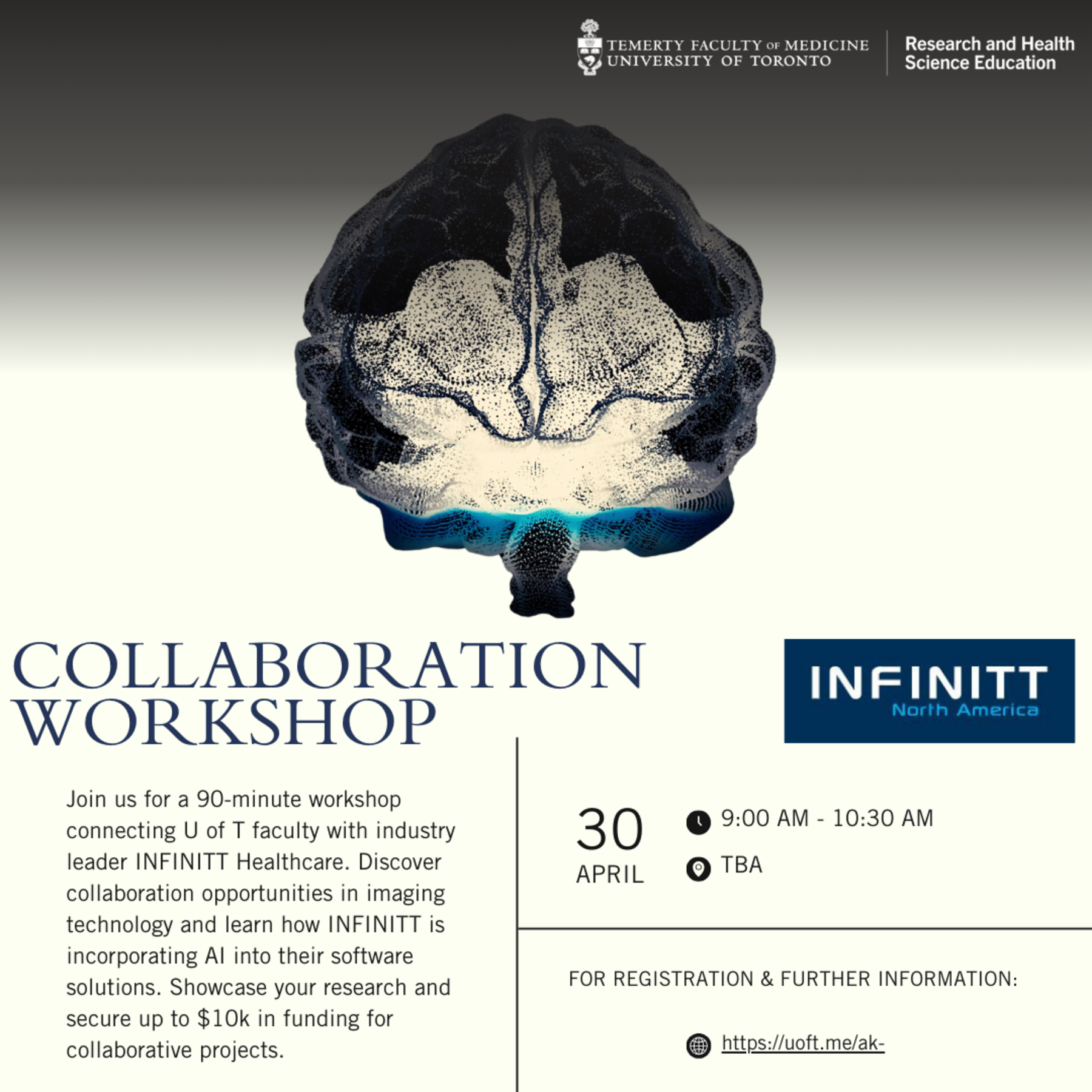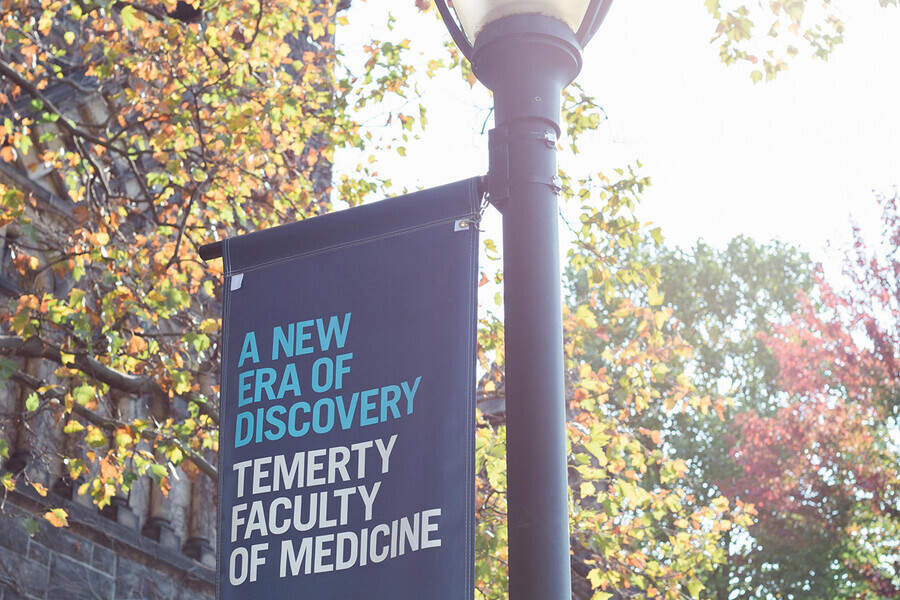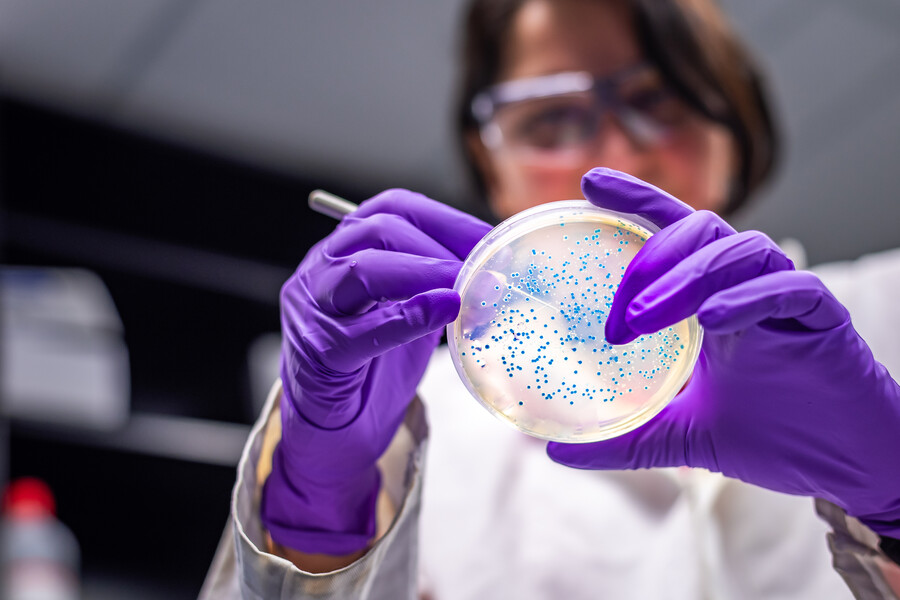The Office of the Vice Dean, Research and Health Science Education (RHSE) encompasses research and two major education activities in the Temerty Faculty of Medicine – Graduate Education and Undergraduate Education in the Life Sciences including Arts and Science and other interdivisional teaching. RHSE also oversees the activities of the Department of Teaching Labs (DTL), advocates for graduate and undergraduate students and promotes innovative research and education in the heart of Canada’s largest health care research hub.

Join us on April 30th from 9:00-10:30 am for a workshop connecting U of T faculty with industry leader INFINITT Healthcare. Discover collaboration opportunities in imaging technologies spanning Radiology, Cardiology, Oncology, Pathology and Ophthalmology. Learn how INFINITT is incorporating AI into their software solutions. Don't miss this chance to showcase your research and secure funding of up to $10k for collaborative projects.
Upcoming Events
Temerty Knowledge Translation Grant: Bench to Bedside - Expression of Interest Due
INFINITT Healthcare
BMS Teaching Seminar: Future of Artificial Intelligence in Basic Medical Sciences and Education - An Experience Exchange
Temerty Knowledge Translation: Bench to Beside Grant - Applications Due
Thesis-Based Programs: Develop Mad Skills, Become an Expert and Change the World Around You!
Professional and Course-Based Master's Programs: Fast Track Your Way to a Rewarding Job that Makes a Difference!
Rehabilitation Sciences: Open the Door to Your Next Adventure!
All About Graduate Student Funding






